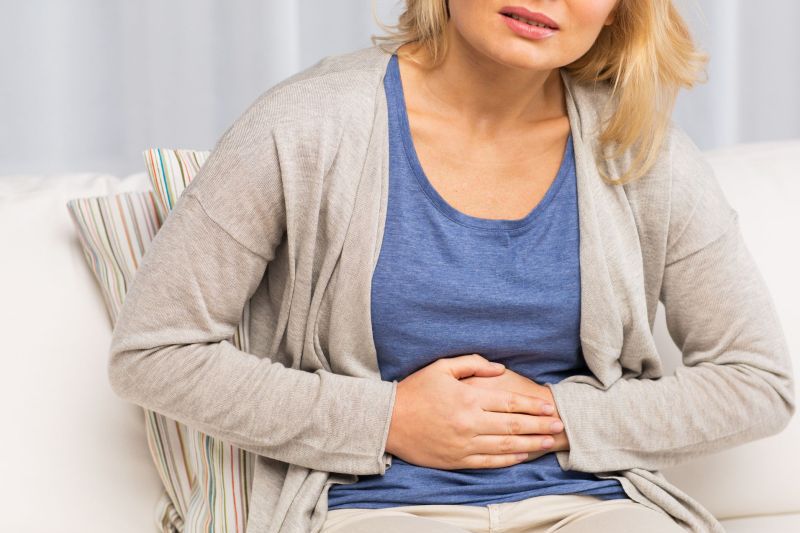Gastritis: causes, symptoms, treatment

Gastritis is one of the most common digestive conditions for which the patient presents himself to the doctor. Significant inflammation of the stomach mucosa and may have multiple causes: infectious, drug, inflammatory, autoimmune, toxic, stress. Classification Causes of gastritis can be: Symptoms Diagnosis and treatment top Classification Gastrites can be classified into acute gastritis, with sudden onset, and chronic, with long lasting development. A gastritis-like notion is also gastropathy, which signifies a mucosal cell damage by contact with irritating chemical agents (anti-inflammatory, biliary juice, alcohol etc. . ) .
Most forms of gastritis or gastropathy are mild and treat through changing lifestyle and diet as well as by drugs that lower the acidity of the gastric juice. Gastric acid juice has two main functions: digestion and elimination of the germs we ingest. The lining of the stomach is lined with a mucus layer to protect against gastric acid. When the balance between protective mucus and gastric acid is disturbed, there is inflammation of the first exposed gastric tissue, the mucosa. top Causes of gastritis can be: • Infectious: The most common cause of chronic gastritis is Helicobacter pylori infection (50% of the population), an oral-mediated bacterial bacterium that can be complicated by ulcer and .
), gastritis can also be determined by viruses such as Citomegalovirus, Herpes simplex, fungi like Candida, parasites such as Stongiloides Stercotralis etc. . • Anti-inflammatory drugs: frequent use of non-steroidal anti-inflammatory drugs (ibuprofen, diclofenac, naproxen etc. ) or aspirin can damage the stomach lining and produce gastropathy or ulcer. • Biliary reflux: Excess bile in the stomach can irritate the mucosa.
• Excessive use of concentrated alcohol: has irritating and erosive effect on the mucosa; . • Stress: Following major surgery, severe burns or infections, the so-called • Autoimmune: autoimmune gastritis - in which autoantibodies are formed against gastric mucosal cells; . Symptoms Symptomatology of the patient with gastritis is pain in the upper abdominal floor, nausea, vomiting, feeling of early satiety, bloating. Some patients are asymptomatic. The suspicion of a diagnosis of gastritis arises from the anamnesis, that is, the discussion with the patient, and the physical examination.
Certain diagnosis of gastritis is the result of an imagistic evaluation of the patient by superior digestive endoscopy, a high specific method, or baritased transit, a method less and less used. Gastrointestinal suspicion is not indicative of superior digestive endoscopy, except for the following: over 40 years of age, family history of digestive and non-digestive cancer, persistent abdominal pain despite treatment, frequent use of anti-inflammatory drugs, anemia, involuntary weight loss, vomiting . These situations may indicate the occurrence of gastritis complications such as gastric ulcer or gastric cancer. top Diagnosis and treatment Superior digestive endoscopy is a minimally invasive diagnostic method and consists of introducing a flexible tube with a top chamber through the mouth through the food pathway. It visualizes the esophagus, the stomach and the duodenum.
Inflammation in gastritis can include the entire stomach (pangastrita) or only a certain segment (antral or corporeal gastritis). By endoscopy, biopsy can be taken from equivocal lesions, and a urease rapid test for Helicobacter pylori. A useful method in the diagnosis of gastritis without performing superior digestive endoscopy is testing for Helicobacter pylori infection, the most common cause of this disease. Testing can be done non-invasively via blood (Ac antiHelicobacter pylori), faeces (Fecal Antigen) and respiratory test. Treatment of gastritis depends on the triggering cause: ➢ Antibiotic therapy against Helicobacter pylori infection ➢ Medicines that inhibit the production of acid in the stomach: proton pump inhibitors (omeprazole, esomeprazole, pantoprazole etc.
. ) and histamine receptor inhibitors (ranitidine, famotidine, cimetidine); . ➢ Antacids: temporarily neutralizes gastric acidity and rapidly relieves symptoms. ➢ Avoiding the use of concentrated alcohol ➢ Avoiding the use of anti-inflammatory drugs or association with acid-inhibiting medicines The beneficial changes in the lifestyle and diet recommended in gastritis are: small and frequent meals, avoid spicy spices, fats and fats, avoid alcohol, . .
Source : csid.ro
Views : 3378
Popular Article
- (photo) Nude becomes art.
Posted: 2018-03-17, 9809 views.
- The harmful effects of air conditioning on the skin
Posted: 2017-06-08, 8519 views.
- 3 causes of dyed hair discoloration
Posted: 2017-06-15, 8402 views.
- Why early puberty occurs in girls: symptoms, favors, diagnosis and treatment
Posted: 2017-10-24, 8243 views.
- Good or bad skin treatments in the hot season
Posted: 2017-06-07, 7975 views.
Recommendations
- (photo) Nude becomes art.
Posted: 2018-03-17, 9809 views.
- The harmful effects of air conditioning on the skin
Posted: 2017-06-08, 8519 views.
- 3 causes of dyed hair discoloration
Posted: 2017-06-15, 8402 views.
- Good or bad skin treatments in the hot season
Posted: 2017-06-07, 7975 views.
- Risks of practicing sports on hot days
Posted: 2017-06-12, 7547 views.
 4 effective ingredients in the fight against acne.
4 effective ingredients in the fight against acne. How to get rid of hiccups fast
How to get rid of hiccups fast The wheat bran diet: the secret of lost pounds as if by magic
The wheat bran diet: the secret of lost pounds as if by magic The recipe that will sweeten your soul this weekend!
The recipe that will sweeten your soul this weekend!  Is it dangerous or not to refreeze meat after thawing it?
Is it dangerous or not to refreeze meat after thawing it?  The unusual sign of diabetes indicated by saliva.
The unusual sign of diabetes indicated by saliva. What to drink to boost your immune system.
What to drink to boost your immune system. 10 foods that help you never age.
10 foods that help you never age. What actually happens in your body if you drink a cup of coffee for breakfast
What actually happens in your body if you drink a cup of coffee for breakfast 5 surprising benefits of chia seeds
5 surprising benefits of chia seeds